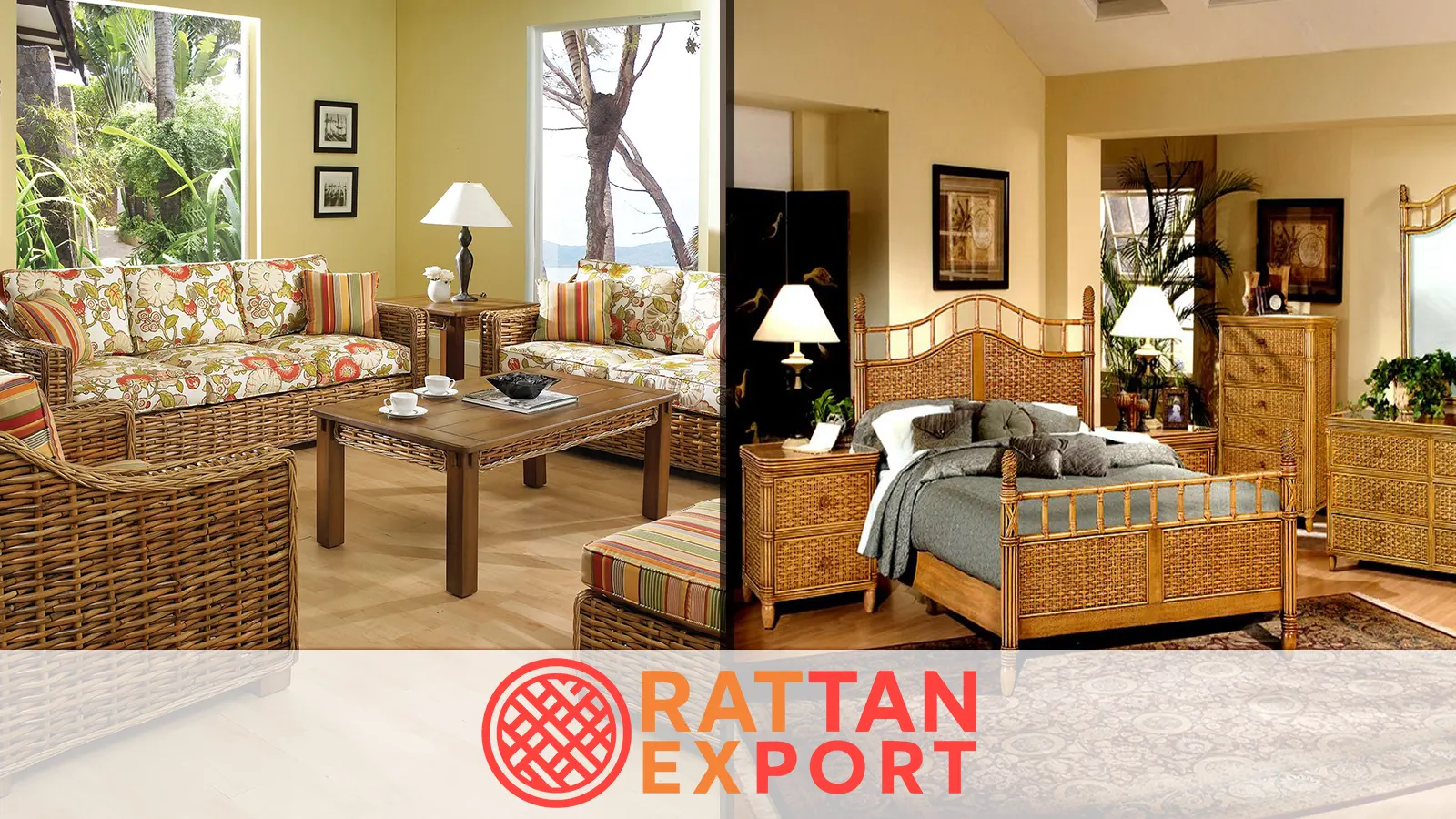Table Rattan
Unlike mass-produced wooden or metal tables, rattan tables carry unique character thanks to handwoven designs, eco-friendly materials, and versatile applications that suit both indoor and outdoor settings. From luxury dining rooms and casual patios to boutique cafés and resort villas, a rattan table elevates any space with timeless elegance. In this extended article, we will explore design and fashion trends, detailed combination ideas, care and maintenance methods, wholesale price analysis (USD only), cultural background of Indonesian rattan production, and why investing in rattan tables is a profitable wholesale opportunity in the global furniture industry.
Style & Design Trends of Rattan Tables
The last two decades have witnessed a major transformation in rattan furniture design. Rattan tables, once seen as rustic or coastal-only options, are now leading in mainstream interior and exterior trends. Key developments include:
- Eco-Luxury Designs: Modern buyers prefer sustainable furniture, and rattan’s natural qualities meet this demand while offering stylish aesthetics.
- Mixed Material Innovations: Rattan combined with tempered glass tops, steel frames, or solid wood bases creates modern, durable structures.
- Flexible Functionality: From compact coffee tables to large dining tables, rattan designs adapt to different lifestyle needs.
- Neutral & Earth Tones: Natural beige, honey brown, gray, and black dominate, blending easily with coastal, boho, and minimalist interiors.
- Indoor-Outdoor Use: UV-protected finishes make rattan tables suitable for patios, balconies, and poolside areas without losing quality.
- Luxury Custom Collections: High-end resorts and private villas invest in custom handmade rattan tables with unique weaves.
Combination & Styling Inspirations
Dining Rooms
A large rattan dining table paired with upholstered or wicker chairs creates a warm, inviting atmosphere perfect for family meals and dinner parties. Neutral-colored cushions and pendant lighting amplify the aesthetic.
Living Rooms
Rattan coffee tables with glass tops add elegance to modern living rooms, balancing durability with lightness. Pair them with neutral sofas or rattan armchairs for cohesive design.
Outdoor Patios
Compact round rattan tables are excellent for balconies or patios, while large rectangular sets suit garden dining. Add umbrellas or pergolas to enhance comfort.
Cafés & Restaurants
Rattan tables are lightweight yet durable, ideal for cafés that want an eco-luxury look. Their artisanal texture creates an Instagram-worthy appeal.
Resorts & Hotels
High-end hospitality spaces use rattan tables for lounges, beachside dining, and poolside bars. Their combination of strength and elegance enhances guest experience.
Care & Maintenance
- Clean regularly with a soft cloth or vacuum brush to remove dust.
- Wipe spills immediately to prevent stains and moisture damage.
- Apply protective coating once a year to keep rattan fibers strong.
- Use coasters, placemats, and covers to protect surfaces from scratches and heat.
- Store indoors or under protective covers in extreme weather.
- Avoid overloading tables with excessive weight to preserve weaving.
- Repaint or re-seal old rattan tables to extend their lifespan.
Wholesale Pricing & Market Analysis
Wholesale buyers prioritize craftsmanship, size, and durability in rattan tables. Below is an indicative wholesale price guide in USD:
| Model | Wholesale Price (USD) |
|---|---|
| Small Round Rattan Coffee Table | 180 |
| Medium Rattan Dining Table (4-Seater) | 350 |
| Large Rattan Dining Table (6-Seater) | 550 |
| Luxury Rattan Dining Table with Glass Top | 800 |
| Outdoor Rattan Table with Weather Protection | 1,000 |
| Custom Handmade Rattan Table | 1,400 |
| Resort-Grade Rattan Banquet Table | 2,000 |
Global demand is driven by eco-conscious homeowners, boutique retailers, and hospitality industries. The strongest markets are in North America, Europe, Japan, and Australia, with growing interest in the Middle East due to luxury resort developments. Online importers also benefit from increasing digital sales channels.
Cultural & Production Background
Indonesia is the world’s leader in rattan furniture production. Cirebon and Jepara (Java) are the largest hubs for mass production, while Bali specializes in boutique luxury designs. Lombok contributes mainly to custom resort and villa projects, though on a smaller scale. The traditional process includes harvesting rattan fibers, drying them under the sun, hand-weaving frames, and applying protective finishes. This cultural heritage is passed through generations, making every rattan table a symbol of Indonesian craftsmanship and sustainability.
Beyond economic value, rattan furniture production sustains thousands of rural households, empowering communities and supporting eco-friendly practices. Exporting rattan tables promotes not only Indonesian artistry but also global awareness of sustainable living.
Conclusion
Table Rattan is more than just furniture—it represents sustainability, culture, and timeless style. Its versatility makes it perfect for homes, resorts, restaurants, and luxury villas. With the rising demand for eco-friendly and artisan-made furniture worldwide, wholesale rattan tables stand out as profitable investments for importers and retailers. Choosing rattan tables means supporting Indonesian artisans while bringing durable, elegant, and sustainable products to the global market.
